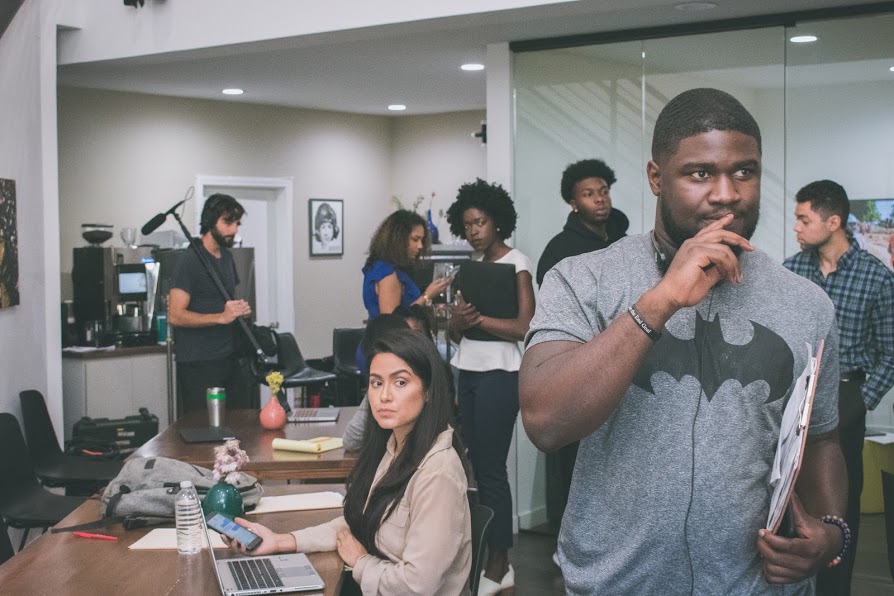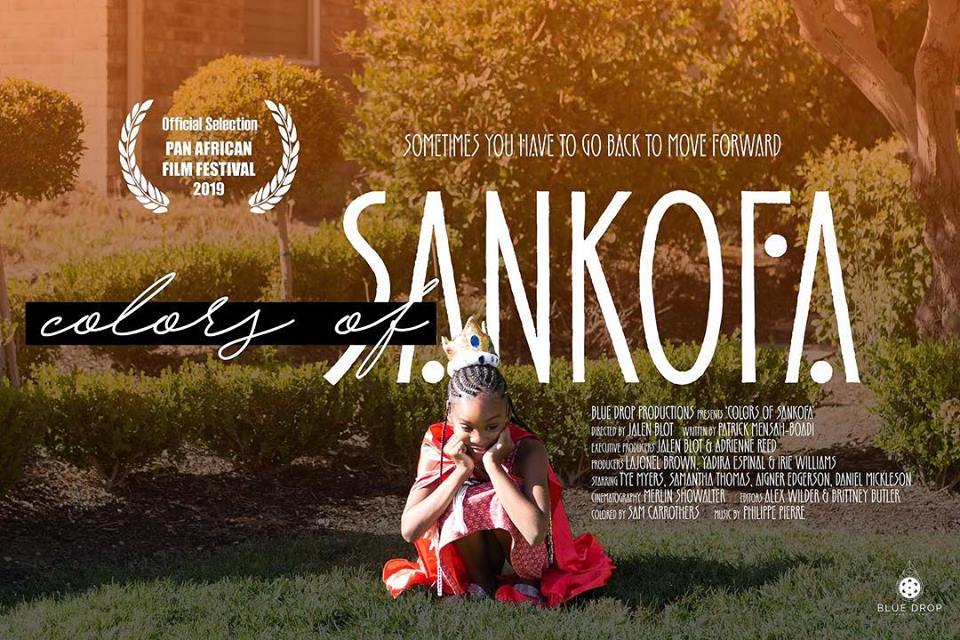

Film director Jalen Blot is off to a promising start in the film industry. At just 25-years old, his first short indie film Colors of Sankofa is an official selection of the Pan African Film Festival, the largest and most prestigious Black Film Festival in America. In its 27th year, PAFF opens this Thursday, February 7.
Colors of Sankofa is a millennial story that depicts the long-lasting effects of bullying, colorism, self identity, feminism, and the pains of being an immigrant in America. The short film explores the world of a black female CEO who has altered her life to assimilate. Her world is shaken up when she interviews a subordinate whom she knows from her childhood. The film delivers a powerful message of compassion and forgiveness.
Blot, who recently moved to Los Angeles from Washington, D.C., says, although filmmaking is an innate talent, YouTube University and working briefly on projects in entertainment on the West Coast, is what really inspired him to create and take the reigns on his own.
Prior to living in Los Angeles, Blot majored in business at Temple University, in Philadelphia, a field that he says made his parents feel more comfortable. His field of study landed him a job in corporate America, where he still works. A few years prior to moving to LA, he tapped into and learned creative expression which became a vehicle to express himself and to hold a mirror to others to amplify their voices and request to be seen. From there, Jalen Blot, the director is born.
Recently, The Chocolate Voice caught up via phone conversation with the director Blot who shared his thoughts on creating a winning film:
How Did you feel when you found out your film got selected into PAFF?
JB: When I got the email, it almost didn’t feel real. It was a very nice surprise. I was very excited for my team. I was excited for the story to be told. It was just good to know that you created art. You finished it. And, it’s being shown publicly. It was definitely an affirmation to continue on this path.
TCV: Since this is your first film, tell us what made this production work?
JB: I’m someone who’s very meticulous who uses each opportunity to teach and learn. What helped the production to be what is was, was the tribe that I formed around me. We met on a web series called “Out of Pocket.” I connected with the producers on that project. We shared similar passions and desires within the industry, so it made sense across the board to hook everyone in. It was really a collaborative effort to figure out how to shoot. We may not always have what we need but we have each other to create in this moment. It’s important for creatives in general, to have people around you that are committed to making it happen despite the lack that may exist.
TCV: How did you connect with the writer?
JB: Over the course of me living here (Los Angeles) there has been an internal debate of should I write or should I direct. When I made the choice to just direct, I focused on directing and sought out people who just wanted to write. A friend suggested Patrick Mensah Boadi. From there, we started thinking through what stories we wanted to tell and decided on this love letter that highlighted the struggles of Black women. The vision was always there between the writer and myself. And from there, we made decisions to make sure that it looked like what it needed to look like. For one, the stories needed to be received well by the community and audience, and two, to compete well to the film schools that we wanted to submit to. We chose to tell stories that focus on the struggles of some Black women, in many ways the Black women closest to us.


What are some the of main obstacles you faced as a millennial in the film industry?
JB: I would say there were three main challenges as a millennial filmmaker as it relates to me. One, funding to pull this whole thing off. Two, gaining trust of others being pulled into the project, without having a long track record. Three, as a creative in general we have doubts that aren’t necessarily justifiable— Am I good enough to do this. As you see, we’ve overcome that collaboratively. And, for myself individually as someone who’s working to grow in confidence in my art.
What directors inspire you?
JB: From a technical perspective there’s, Christopher Noland (The Dark Knight). As for how I want to grow as a creative, these three names always seem to come up—Ava DuVernay, and how much she’s committed to the people she has worked with on her first film. For her, it’s about the art but it’s also about the people and providing opportunities that we otherwise wouldn’t get as black creatives. Barry Jenkins, he’s humble and less inspiring yet he demands a presence. The way he’s able to work with his talent and really pull out raw emotion. I love that. And, Jordan Peele who tells Black stories that always aren’t always centered-around struggle in a strategic way. There are many directors that I appreciate, but these three stick out to me.


TCV: Any upcoming projects that we should know about?
JB: I’m currently working on turning “Colors of Sankofa” into a feature film.
Colors of Sankoka will be shown on Friday, Feb. 8 at 4:30 p.m. and Monday, Feb. 11 at 6:00 p.m in Los Angeles, CA
The Pan African Film + Arts Festival begins Thursday, Feb. 7, and ends on Monday, Feb. 18. For more info on the festival and ticket inquiries, visit PAFF.
